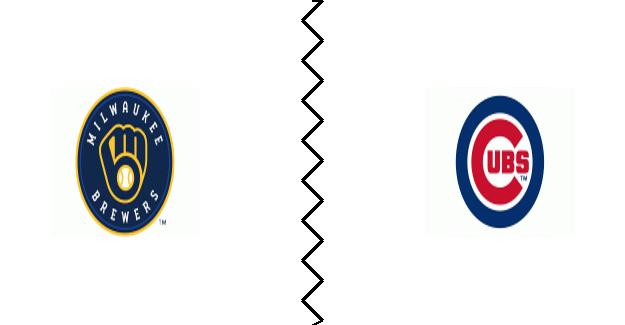2025-08-20 Brewers at Cubs Matchup Preview

A National League Central clash sees the Brewers travel to Wrigley Field to face the Cubs in a pivotal late-season matchup.


Starting Pitching Matchup
Right-hander Jacob Misiorowski is slated to take the mound for the Milwaukee Brewers, while the Chicago Cubs will counter with right-hander Colin Rea. Misiorowski brings a repertoire built around velocity and movement, challenging hitters to consistently square up his offerings, though control can sometimes be a factor. Rea relies on precision and pitch sequencing, aiming to induce soft contact and keep hitters off balance. His experience and command are crucial assets for the Cubs rotation.
Brewers' Offensive Outlook
The Milwaukee Brewers offense is a collection of hitters, featuring a lineup construction that skews slightly below the league average age-wise. A key area for the Brewers’ success is their ability to get on base, showcased by their on-base percentage. When the Brewers are successful at generating traffic on the base paths, they tend to create scoring opportunities through timely hitting and aggressive baserunning. A point of emphasis for the Brewers will be cutting down on their strikeout rate, focusing on shortening their swings and making contact, particularly against Rea's pitch-to-contact approach. Their power numbers are about average, and with some more walks could see an increase in their run creation.
Cubs' Offensive Outlook
The Chicago Cubs' offense has been built upon the foundation of veteran leadership combined with youthful energy, and their collective age sits around the league average. One area where the Cubs excel is their ability to work counts and draw walks, leading to a higher on-base percentage than their opponents. Maintaining a disciplined approach at the plate will be crucial against Misiorowski's tendency to sometimes lose command of his pitches. The Cubs also have shown a proficiency in hitting for extra bases as shown by their isolated power, which can turn a close game into a comfortable lead in a single swing. Their walk rate is above average, which means they could be in for a big day if they are swinging and connecting when Misiorowski is in the zone.
Pitching vs. Hitting: Key Matchups
The Brewers' success will hinge on Misiorowski's ability to harness his velocity and movement to neutralize the Cubs' patient approach. Keeping the ball down in the zone will be crucial to avoid the Cubs’ extra base prowess. For the Cubs, Rea will need to continue executing his game plan and keeping the Brewers' hitters off balance with his pitch sequencing. Focusing on inducing weak contact and limiting the Brewers' opportunities to generate momentum on the basepaths will be key to his success. If the Cubs can increase their walk rate, then it is possible that Misiorowski has a short outing.
Bullpen Considerations
Both the Brewers and Cubs possess solid bullpens, capable of locking down late-inning leads. The Brewers bullpen relies on a mix of power arms and crafty veterans, providing manager Pat Murphy with flexibility in high-leverage situations. The Cubs bullpen, similarly, is a blend of experience and youthful talent, with several arms capable of pitching multiple innings or closing out games. Bullpen management will be critical, especially if either starter exits the game prematurely.
Intangibles and Game Strategy
The atmosphere at Wrigley Field is always a factor, and the Cubs will look to feed off the energy of their home crowd. The Brewers, however, are a resilient team that has shown the ability to perform well on the road. Managerial decisions, such as pinch-hitting opportunities and strategic pitching changes, will likely play a significant role in the outcome of the game. The ability to capitalize on mistakes and execute in crucial moments will be paramount for both teams.
Final Analysis
This matchup has all the makings of a tightly contested game, with two evenly matched teams battling for position. The Brewers’ ability to manufacture runs and leverage their pitching depth will be tested by the Cubs’ patient offense and home-field advantage. Ultimately, the team that can execute its game plan more effectively and capitalize on opportunities will emerge victorious. A key factor will be whether Misiorowski can control his pitches against a Cubs lineup that likes to be patient at the plate.
Brewers 4 Cubs 3